Search titles
Displaying results 51 to 60 of 163.

The Human Voyage: Undergraduate Research in Biological Anthropology: Volume 1, 2017 »
Publication date: August 2017
The Human Voyage: Undergraduate Research in Biological Anthropology is a journal that publishes outstanding student articles in all areas of biological anthropology, including primatology, palaeoanthropology, bioarchaeology and human behavioural ecology.
While the primary goal of this journal is to publish work of the highest quality authored by undergraduate students, it will also educate students in regards to publishing in academia. All submissions will be peer-reviewed and edited by ANU academic staff.
Download for free
Not available for purchase
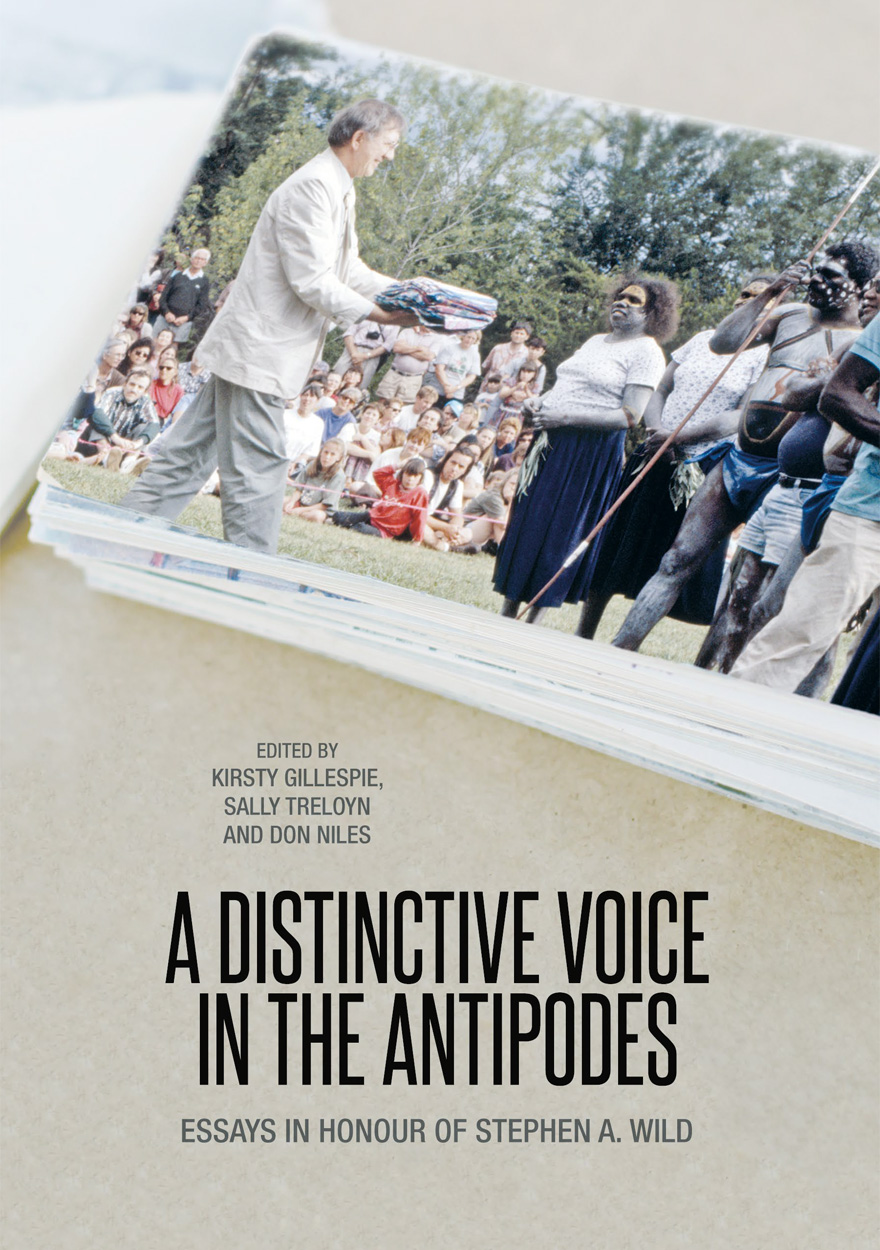
A Distinctive Voice in the Antipodes »
Essays in Honour of Stephen A. Wild
Publication date: July 2017
This volume of essays honours the life and work of Stephen A. Wild, one of Australia’s leading ethnomusicologists. Born in Western Australia, Wild studied at Indiana University in the USA before returning to Australia to pursue a lifelong career with Indigenous Australian music.
As researcher, teacher, and administrator, Wild’s work has impacted generations of scholars around the world, leading him to be described as ‘a great facilitator and a scholar who serves humanity through music’ by Andrée Grau, Professor of the Anthropology of Dance at University of Roehampton, London.
Focusing on the music of Aboriginal Australia and the Pacific Islands, and the concerns of archiving and academia, the essays within are authored by peers, colleagues, and former students of Wild. Most of the authors are members of the Study Group on Music and Dance of Oceania of the International Council for Traditional Music, an organisation that has also played an important role in Wild’s life and development as a scholar of international standing.
Ranging in scope from the musicological to the anthropological—from technical musical analyses to observations of the sociocultural context of music—these essays reflect not only on the varied and cross-disciplinary nature of Wild’s work, but on the many facets of ethnomusicology today.

Ten Thousand Years of Cultivation at Kuk Swamp in the Highlands of Papua New Guinea »
Publication date: July 2017
Kuk is a settlement at c. 1600 m altitude in the upper Wahgi Valley of the Western Highlands Province of Papua New Guinea, near Mount Hagen, the provincial capital. The site forms part of the highland spine that runs for more than 2500 km from the western head of the island of New Guinea to the end of its eastern tail. Until the early 1930s, when the region was first explored by European outsiders, it was thought to be a single, uninhabited mountain chain. Instead, it was found to be a complex area of valleys and basins inhabited by large populations of people and pigs, supported by the intensive cultivation of the tropical American sweet potato on the slopes above swampy valley bottoms.
With the end of World War II, the area, with others, became a focus for the development of coffee and tea plantations, of which the establishment of Kuk Research Station was a result. Large-scale drainage of the swamps produced abundant evidence in the form of stone axes and preserved wooden digging sticks and spades for their past use in cultivation. Investigations in 1966 at a tea plantation in the upper Wahgi Valley by a small team from The Australian National University yielded a date of over 2000 years ago for a wooden stick collected from the bottom of a prehistoric ditch.
The establishment of Kuk Research Station a few kilometres away shortly afterwards provided an ideal opportunity for a research project.
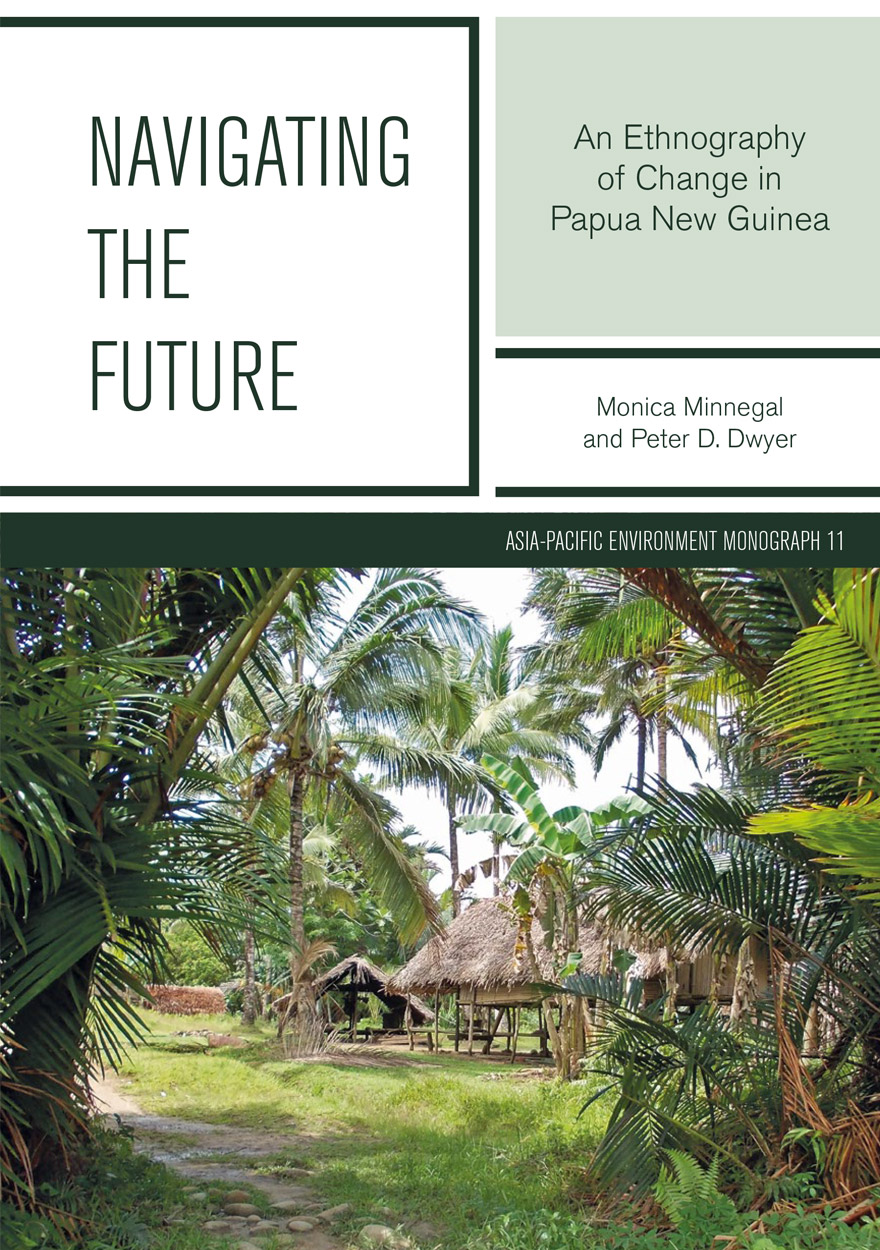
Navigating the Future »
An Ethnography of Change in Papua New Guinea
Authored by: Monica Minnegal, Peter D. Dwyer
Publication date: June 2017
Navigating the Future draws on long-term ethnographic fieldwork with Kubo people and their neighbours, in a remote area of Papua New Guinea, to explore how worlds are reconfigured as people become increasingly conscious of, and seek to draw into their own lives, wealth and power that had previously lain beyond their horizons. In the context of a major resource extraction project—the Papua New Guinea Liquefied Natural Gas (PNG LNG) Project–taking shape in the mountains to the north, the people in this area are actively reimagining their social world. This book describes changes in practice that result, tracing shifts in the ways people relate to the land, to each other and to outsiders, and the histories of engagement that frame those changes. Inequalities are emerging between individuals in access to paid work, between groups in potential for claiming future royalties, and between generations in access to information. As people at the village of Suabi strive to make themselves visible to the state and to petroleum companies, as legal entities entitled to receive benefits from the PNG LNG Project, they are drawing new boundaries around sets of people and around land and declaring hierarchical relationships between groups that did not exist before. They are struggling to make sense of a bureaucracy that is foreign to them, in a place where the state currently has minimal presence. A primary concern of Navigating the Future is with the processes through which these changes have emerged, as people seek to imagine—and work to bring about—a radically different future for themselves while simultaneously reimagining their own past in ways that validate those endeavours.

Tides of Innovation in Oceania »
Value, materiality and place
Edited by: Elisabetta Gnecchi-Ruscone, Anna Paini
Publication date: April 2017
Tides of Innovation in Oceania is directly inspired by Epeli Hau‘ofa’s vision of the Pacific as a ‘Sea of Islands’; the image of tides recalls the cyclical movement of waves, with its unpredictable consequences. The authors propose tides of innovation as a fluid concept, unbound and open to many directions. This perspective is explored through ethnographic case studies centred on deeply elaborated analyses of locally inflected agencies involved in different transforming contexts. Three interwoven themes—value, materiality and place—provide a common thread.

Dilthey’s Dream »
Essays on human nature and culture
Authored by: Derek Freeman
Publication date: April 2017
With great eloquence, Derek Freeman takes the reader on an intellectual journey through the complexities of philosophical anthropology. Even while the controversial Nature–Nurture debate raged, Freeman contended that the crucial fact that humans had the capacity to make choices was ‘both intrinsic to our biology and basic to the very formation of cultures’. Thus the scene was set for his widely publicised criticism of Margaret Mead’s book Coming of Age in Samoa. Publishing her research in 1926, Mead concluded that all human behaviour was the result of social conditioning. Freeman refuted this assumption in 1983, urging closer interactions between the biological sciences and cultural studies to bridge the ever-widening chasm threatening all studies of humankind.
Dilthey’s Dream is an engagingly powerful set of essays depicting the depth of one man’s thinking on issues, which consumed a lifetime.

New Perspectives in Southeast Asian and Pacific Prehistory »
Publication date: March 2017
‘This volume brings together a diversity of international scholars, unified in the theme of expanding scientific knowledge about humanity’s past in the Asia-Pacific region. The contents in total encompass a deep time range, concerning the origins and dispersals of anatomically modern humans, the lifestyles of Pleistocene and early Holocene Palaeolithic hunter-gatherers, the emergence of Neolithic farming communities, and the development of Iron Age societies. These core enduring issues continue to be explored throughout the vast region covered here, accordingly with a richness of results as shown by the authors.
Befitting of the grand scope of this volume, the individual contributions articulate perspectives from multiple study areas and lines of evidence. Many of the chapters showcase new primary field data from archaeological sites in Southeast Asia. Equally important, other chapters provide updated regional summaries of research in archaeology, linguistics, and human biology from East Asia through to the Western Pacific.’
Mike T. Carson
Associate Professor of Archaeology
Micronesian Area Research Center
University of Guam
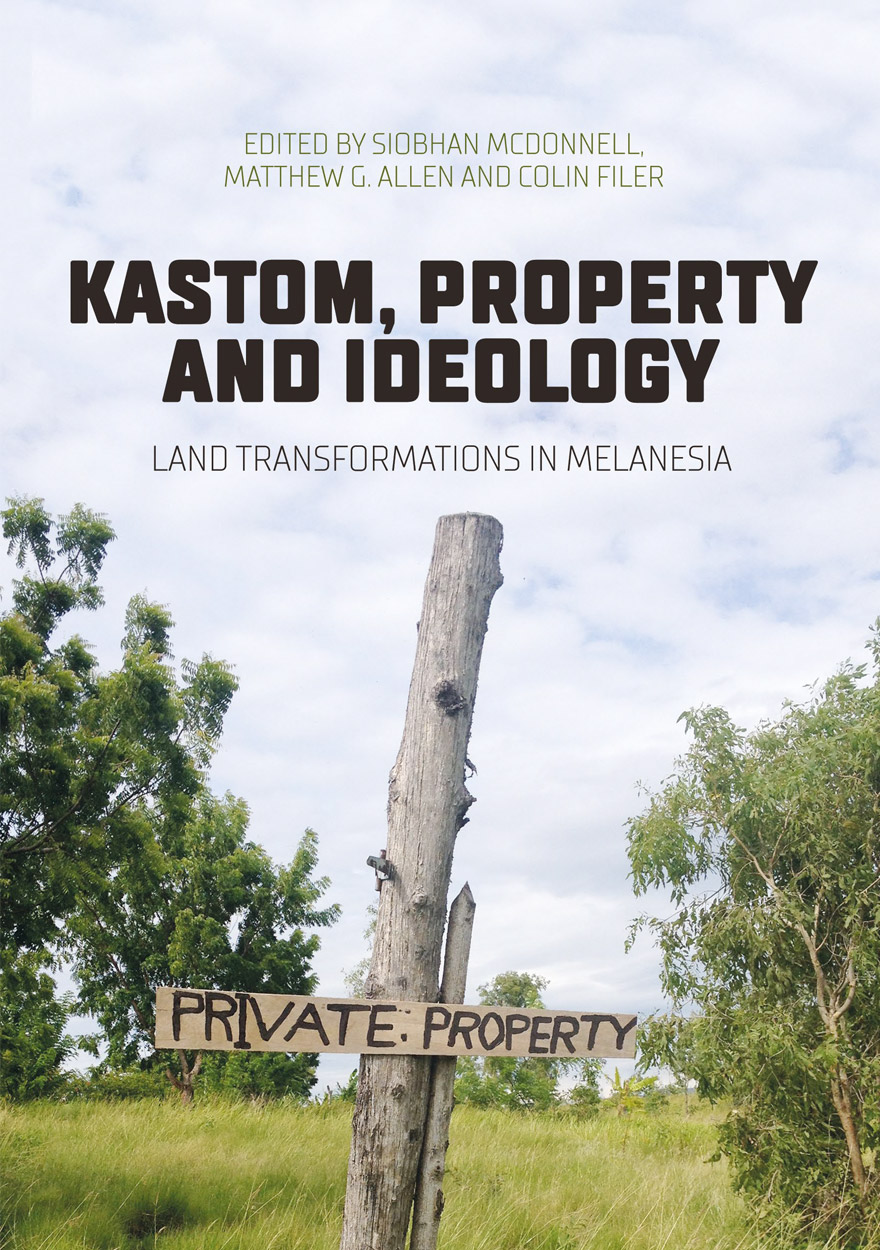
Kastom, property and ideology »
Land transformations in Melanesia
Publication date: March 2017
The relationship between customary land tenure and ‘modern’ forms of landed property has been a major political issue in the ‘Spearhead’ states of Melanesia since the late colonial period, and is even more pressing today, as the region is subject to its own version of what is described in the international literature as a new ‘land rush’ or ‘land grab’ in developing countries. This volume aims to test the application of one particular theoretical framework to the Melanesian version of this phenomenon, which is the framework put forward by Derek Hall, Philip Hirsch and Tania Murray Li in their 2011 book, Powers of Exclusion: Land Dilemmas in Southeast Asia. Since that framework emerged from studies of the agrarian transition in Southeast Asia, the key question addressed in this volume is whether ‘land transformations’ in Melanesia are proceeding in a similar direction, or whether they take a somewhat different form because of the particular nature of Melanesian political economies or social institutions. The contributors to this volume all deal with this question from the point of view of their own direct engagement with different aspects of the land policy process in particular countries. Aside from discussion of the agrarian transition in Melanesia, particular attention is also paid to the growing problem of land access in urban areas and the gendered nature of landed property relations in this region.
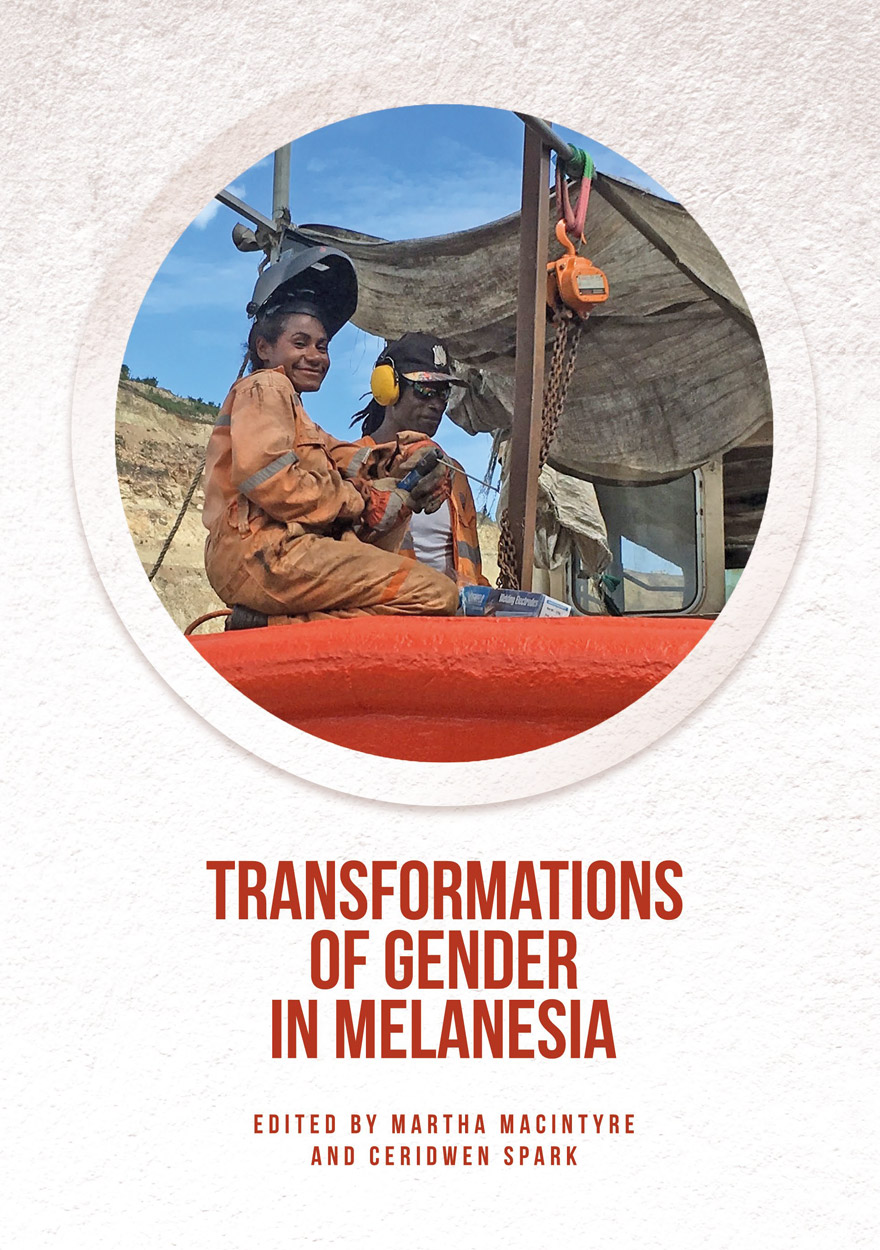
Transformations of Gender in Melanesia »
Edited by: Martha Macintyre, Ceridwen Spark
Publication date: February 2017
Despite the plethora of research on gender and the many projects designed to improve their status in the Pacific region, women continue to be disadvantaged and marginalised in social, economic and political spheres. How are we to understand this and what does it mean for researchers, policy-makers and development practitioners?
This book examines these questions, partly by looking back but also by continuing the effort to explain and understand gender inequities in the Pacific through reference to the concept of societies in transition. The contributors discuss emerging masculinities and femininities in the Pacific in order to chart the development of these in their contexts. Exploring how contemporary Pacific identities are shaped by local contexts and traditions, they focus on how these are remade through interaction with global ideas, images and practices, including new forms of Christianity and economic transformations. Grounded in recent, original research in both the villages and towns of Melanesia, the collection engages with the study of gender in Melanesia as well as scholarship on global modernities.
‘This collection is a welcome addition to the study of gender in Melanesia … Collectively, the essays present complex, locally contextualised and regionally situated case studies of gender transformation occurring alongside, in many instances, the re-codification of hegemonic gendered norms and practices. Gender is not understood as simply code for women in this volume rather, the majority of chapters incorporate men and masculinities in their analysis of gender relations and dynamics. A highlight of the collection is the attention paid to how “the politics of tradition” (and of modernity) are expressed through morally loaded concepts of the “good” or “bad” woman or man and vice versa.’
— Kalissa Alexeyeff, University of Melbourne
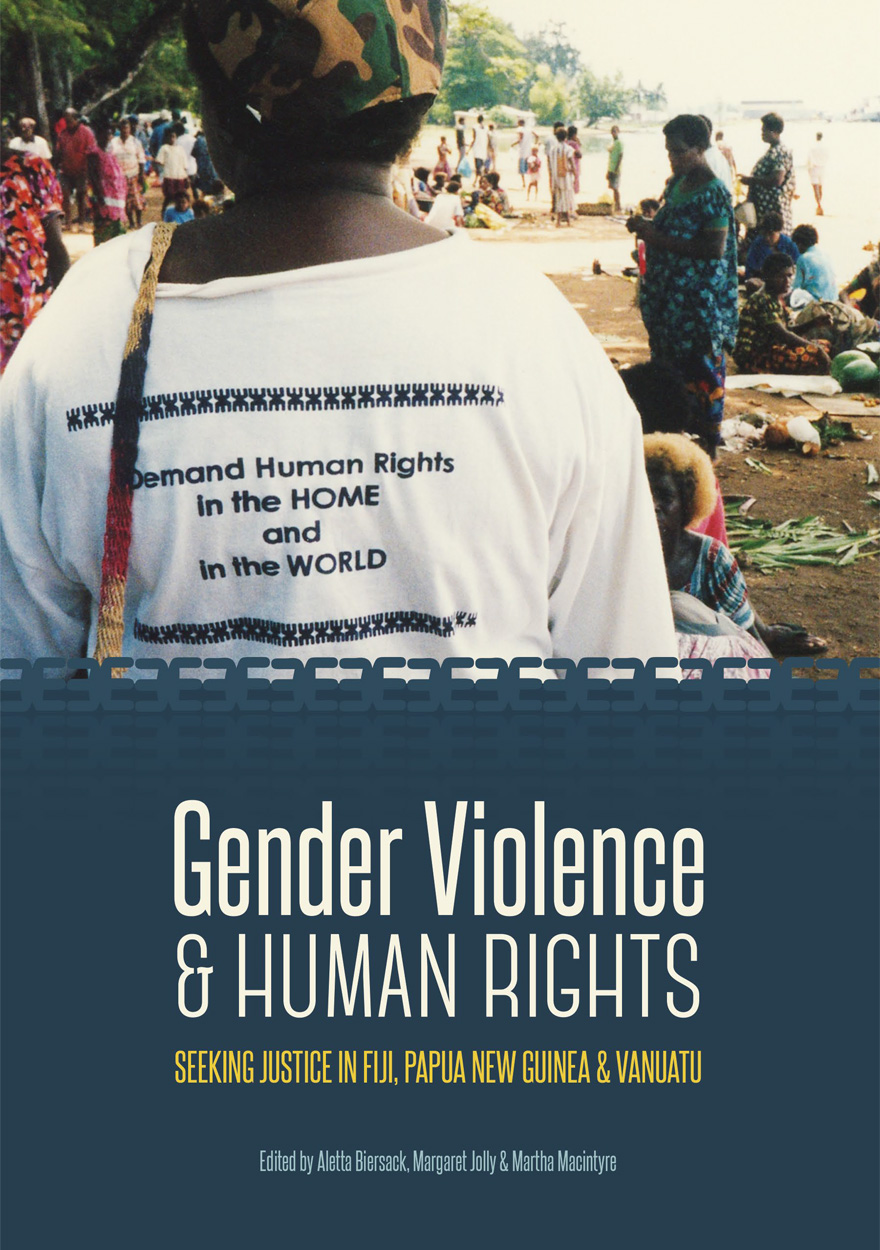
Gender Violence & Human Rights »
Seeking Justice in Fiji, Papua New Guinea and Vanuatu
Publication date: December 2016
The postcolonial states of Fiji, Papua New Guinea and Vanuatu operate today in a global arena in which human rights are widely accepted. As ratifiers of UN treaties such as the Convention on the Elimination of All Forms of Discrimination against Women and the Convention on the Rights of the Child, these Pacific Island countries have committed to promoting women’s and girls’ rights, including the right to a life free of violence. Yet local, national and regional gender values are not always consistent with the principles of gender equality and women’s rights that undergird these globalising conventions. This volume critically interrogates the relation between gender violence and human rights as these three countries and their communities and citizens engage with, appropriate, modify and at times resist human rights principles and their implications for gender violence. Grounded in extensive anthropological, historical and legal research, the volume should prove a crucial resource for the many scholars, policymakers and activists who are concerned about the urgent and ubiquitous problem of gender violence in the western Pacific.
‘This is an important and timely collection that is central to the major and contentious issues in the contemporary Pacific of gender violence and human rights. It builds upon existing literature … but the contributors to this volume interrogate the connection between these two areas deeply and more critically … This book should and must reach a broad audience.’
— Jacqui Leckie, Associate Professor, Anthropology and Archaeology, University of Otago
‘The volume addresses the tensions between human and cultural, individual and collective rights, as played out in the domain of gender … Gender is a perfect lens for exploring these tensions because cultural rights are often claimed in defence of gender oppression and because women often have imposed upon them the burden of representing cultural traditions in attire, comportment, restraint or putatively cultural conservatism. And Melanesia is a perfect place to consider these gendered issues because of the long history of ethnocentric representations of the region, because of the extent to which these are played out between states and local cultures and because of the efforts of the vibrant women’s movements in the region to develop locally workable responses to the problems of gender violence in these communities.’
— Christine Dureau, Senior Lecturer, Anthropology, University of Auckland



